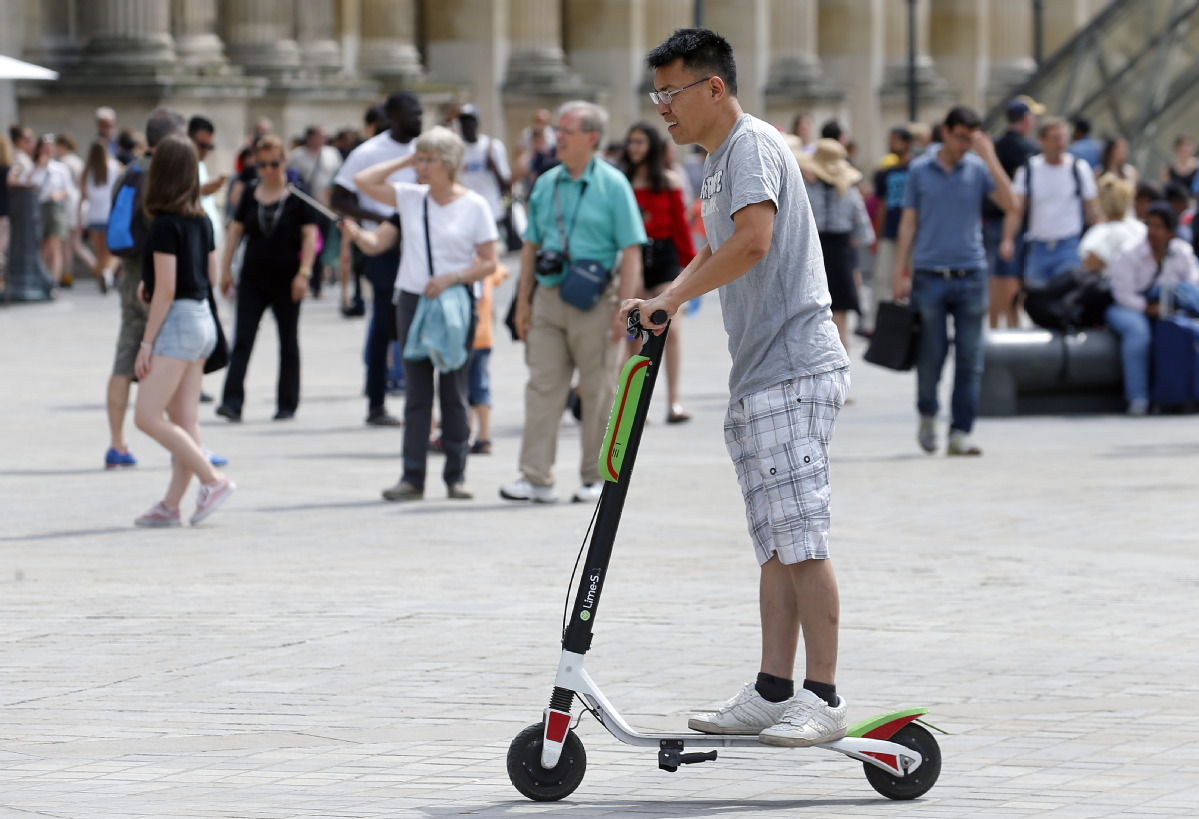Lime's e-scooters now a hit in foreign countries


Lime, a micro-mobility startup founded by Chinese entrepreneurs, is bringing its e-scooters to over 200 cities globally to cash in on the opportunities of the sharing economy overseas. The move comes as bike-sharing firms Ofo and Mobike hit bumpy roads both domestically and abroad.
"We are in active talks with overseas markets including Singapore after deploying our scooters and bikes in more than 20 countries and regions including Europe, the US and New Zealand," said Toby Sun, co-founder and CEO of Lime. He added that Lime's registered users have exceeded 20 million.
The remarks came as Ofo and Mobike, once touted as investor darlings, pedaled toward an uncertain future, due mostly to overexpansion and their struggles to find profitable business models.
To avoid the Ofo and Mobike dilemma, Sun said that Lime decided from the beginning not to overexpand abroad to ensure company profits can feed future expansion in an orderly and healthy way.
"Also, we pay a lot of attention to government relations. We have cooperated with governments from 200 cities to figure out a proper method to solve local transportation problems," he said.
Currently, the shared e-scooter frenzy is sweeping foreign markets. A report found that more than 60,000 e-scooters have been deployed in the US alone and the total ridership is expected to hit 240,000 e-scooters per day.
Industry insiders said safety concerns are holding back the e-scooter craze. E-scooter firms are also challenged by government supervision.
"We've poured a lot money and energy into perfecting the product as well as the supply chain, in a bid to make the e-scooter more safe and sustainable," said Sun.
Lime is also looking to cooperate with more governments to open and develop roads that are specific for riding bikes and scooters.
The San Francisco-based firm recently finished a $336 million funding deal reported to value the firm at $2.4 billion. Google Ventures and GGV Capital are among Lime's investors.
Hans Tung, managing partner of GGV Capital, said the need for short-distance transportation exists, and the market potential of micro-mobility could be huge.
Tung said the investment firm thought highly of Lime's business model - expanding business while communicating - which is quite different from that of shared bikes in the domestic market.
"Also, at the time of investment, no other team is like Lime, which understands (consumers' needs in) both China and the US. The firm can find good suppliers in China and also explore business efficiently in the foreign markets," he said.



































